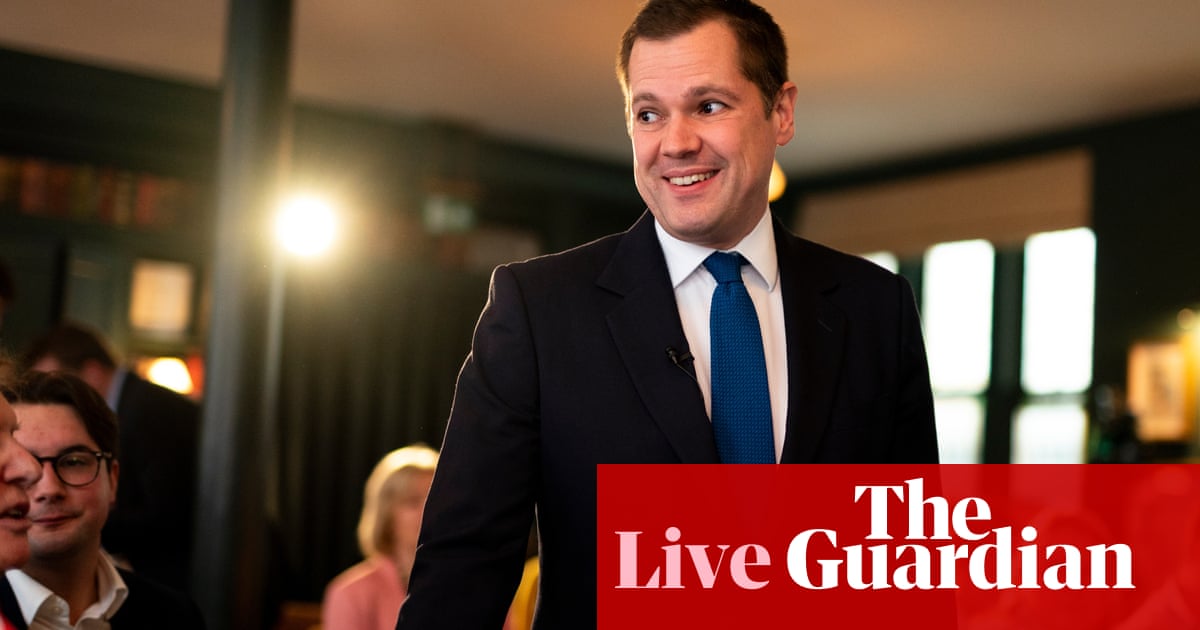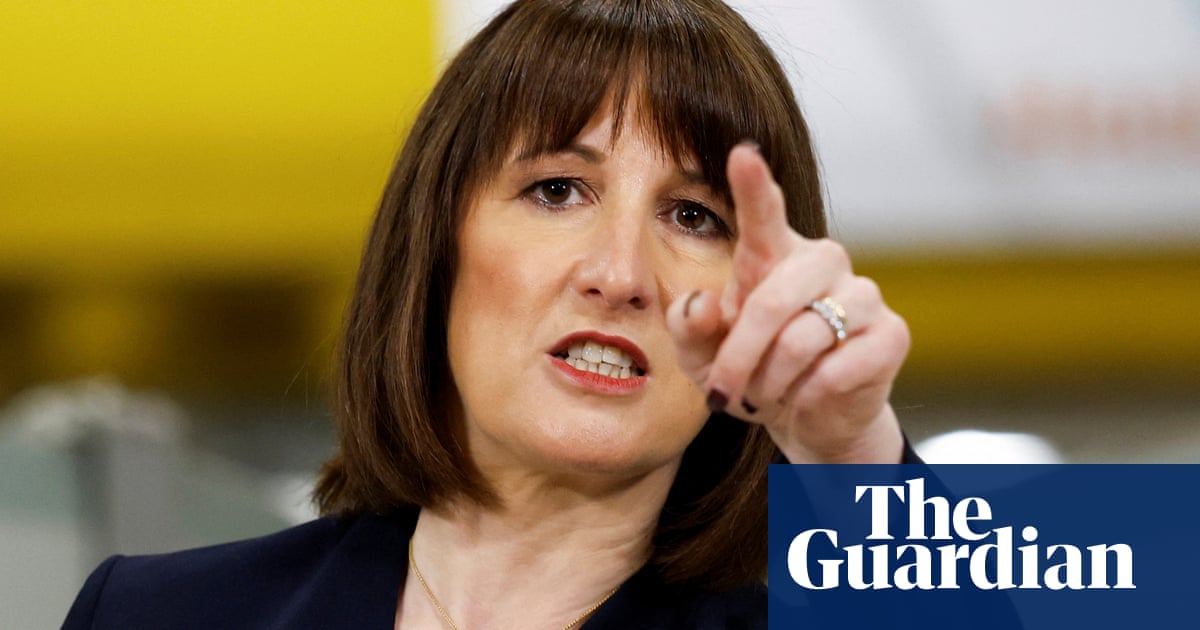Which former British prime minister described the climate emergency as “a clock ticking to the furious rhythm of hundreds of billions of pistons and turbines and furnaces and engines … quilting the Earth in an invisible and suffocating blanket of CO2”?
The florid style gives it away. You’d guess Boris Johnson even if you’d forgotten that the master of Brexit bombast also had a sideline in net zero evangelism. It wasn’t the most memorable part of his repertoire and it didn’t catch on as a Conservative catechism.
Subsequent Tory leaders abandoned Johnson’s rhetorical urgency over carbon emissions and repudiated Theresa May’s targets for cutting them. Kemi Badenoch acknowledges that the science of global heating is real but only as an afterthought, once she has finished complaining about the costs of a green transition and the improbable timetable set to achieve it.
As in most matters, the Tories are flattering Nigel Farage with pale policy imitation. The Reform UK leader calls net zero “lunacy” that destroys jobs and drives up household bills. Reform’s policy is to scrap carbon targets entirely and tax renewables.
Farage needs a vehicle for economic and cultural grievance to replace his old anti-European bandwagon. It served him so well but was immobilised in multiple collisions with reality. He wants climate-scepticism to be his second crusade, rallying demoralised, alienated voters against arrogant metropolitan elites. “This could be the next Brexit, where parliament is so hopelessly out of touch with the country,” the Reform leader said over the weekend. (He seems to have dropped an earlier demand for a referendum on net zero.)
The Tories are too beaten, too drained of intellectual autonomy, to do anything but tag along behind Reform. Labour is not immune to the same paralysing anxiety – the fear that Farage, despite his public school pedigree and City trader swagger, has an uncanny way with working-class voters.
It doesn’t help that the rightwing press amplify Reform’s campaigns and caricature Ed Miliband, energy secretary, as a zealous crank. In the ever-seething stew of Labour factionalism it isn’t hard to find MPs who use Miliband’s name as a byword for electoral liability. That resentment bubbles to the surface as media speculation that he might be removed at the next cabinet reshuffle, or that he should be.
That isn’t the signal coming out of Downing Street. No one actually involved in writing or presenting government climate policy is preparing a U-turn in flight from Faragism. On the contrary, later this week, Keir Starmer will reaffirm his commitment to the renewable energy transition in a speech at an international summit in London, co-chaired by Miliband.
It won’t be a green rhapsody in the key of Johnson. That isn’t the current prime minister’s style. Starmer’s case will be grounded in economic pragmatism and the national interest – investment in high-skilled, high-wage industries; ending the vulnerability of supply that pegs household bills to the coercive whim of Vladimir Putin; safe British jobs in secure British energy.
If delivered well, it is a message with enough potential public resonance to box Reform on to the side of economic decline and dependence on dictators. The evidence from opinion polls (supported by accounts from focus groups that test these issues) suggests that climate scepticism is not the Brexit sequel craved by Farage.
Opposition to the government’s net zero target is a minority position across every segment of the electorate. Even Reform and Conservative voters are more likely to say that green investment will have a positive impact – growing the economy and reducing the cost of living – than the opposite.
Anxiety about climate change is not confined to places that voted to remain in the EU. In one survey by research organisation More in Common, 68% of Farage’s constituents in Clacton-on-Sea, Essex, declared themselves “somewhat” or “very” worried about the issue.
There are places where net zero is universally despised, but they are online. In those radical rightwing digital arenas, climate consciousness is the stuff of woke activism, a badge of culture-war villainy worn alongside gender-neutral pronouns. Those digital silos, skewed by their fanatical American conservative audience (and, in the case of Elon Musk’s X, a maniacal American proprietor) seethe with conspiracy theories and denial of climate science. Party leaders and prominent commentators of the British right who play to that crowd are pulling away from the mainstream position in their domestic political market.
There are still plenty of hazards for the government navigating a complex energy transition. There is a way to sell the long-term goal as a happy alignment of future prosperity and cleaner living, but there are still upfront costs and tricky trade-offs.
One cautionary tale is a notoriously botched German scheme to phase out gas boilers. Households were spooked by the cost of heat pumps and, despite promised subsidies, the backlash helped bring down Olaf Scholz’s ruling coalition. The main beneficiary was the far-right Alternative für Deutschland.
Another instructive episode is the July 2023 Uxbridge byelection, which the Tories won in defiance of national polling trends. The result was credited to a Conservative campaign targeting London mayor Sadiq Khan’s plans to extend congestion charging to the capital’s outer suburbs.
But two years on, the lessons from that tale are not so clear-cut. Rishi Sunak thought he had found a template for attacking Labour as a party of anti-motorist ecowarriors. But when he tried to scale the message up into a new policy direction he was pilloried for reneging on Britain’s international climate commitments. Uxbridge was over-interpreted in Westminster, held up as a distorting lens that continues to warp conversations about environmental regulation. The seat flipped to Labour in the general election a year later.
That is worth remembering if, as seems likely, Reform does well in council elections and the Runcorn byelection next month. Farage will want the results to prove that his fossil-fuelled bandwagon is on the roll. Tory climate-sceptics will eagerly jump aboard even if the true motivations of voters are messy and hard to untangle. They usually are.
There will be calls for Starmer to fend off the radical right with concessions to Reform’s agenda. Yielding to that temptation is a mistake. The tributes go unappreciated by their target audience. They land instead like a slap in the faces of long-suffering Labour supporters who had hoped the era of coddling Farage would end once the Tories were evicted from power.
It doesn’t take too many demoralised liberal-left voters in marginal seats switching to the Liberal Democrats, Greens or Scottish National party to put new obstacles on the road to a second Starmer term. Allegiances that have been frayed by cuts to benefits, overseas aid and other sundry disappointments would be irretrievably severed in a retreat from climate commitments.
Leaning into the green transition slows that decay in morale. It draws a clarifying line between the Starmer project and an axis of Tory-Reform climate defeatism. Deftly argued, it is a way to position the prime minister on the side of optimism, mainstream British opinion, resilience in an uncertain world and clean air. His opponents can have Putin, Donald Trump and pollution on their team. It is the smart move in terms of electoral strategy. It happens also to be the right thing to do.
-
Rafael Behr is a Guardian columnist

.png) 4 hours ago
3
4 hours ago
3













































